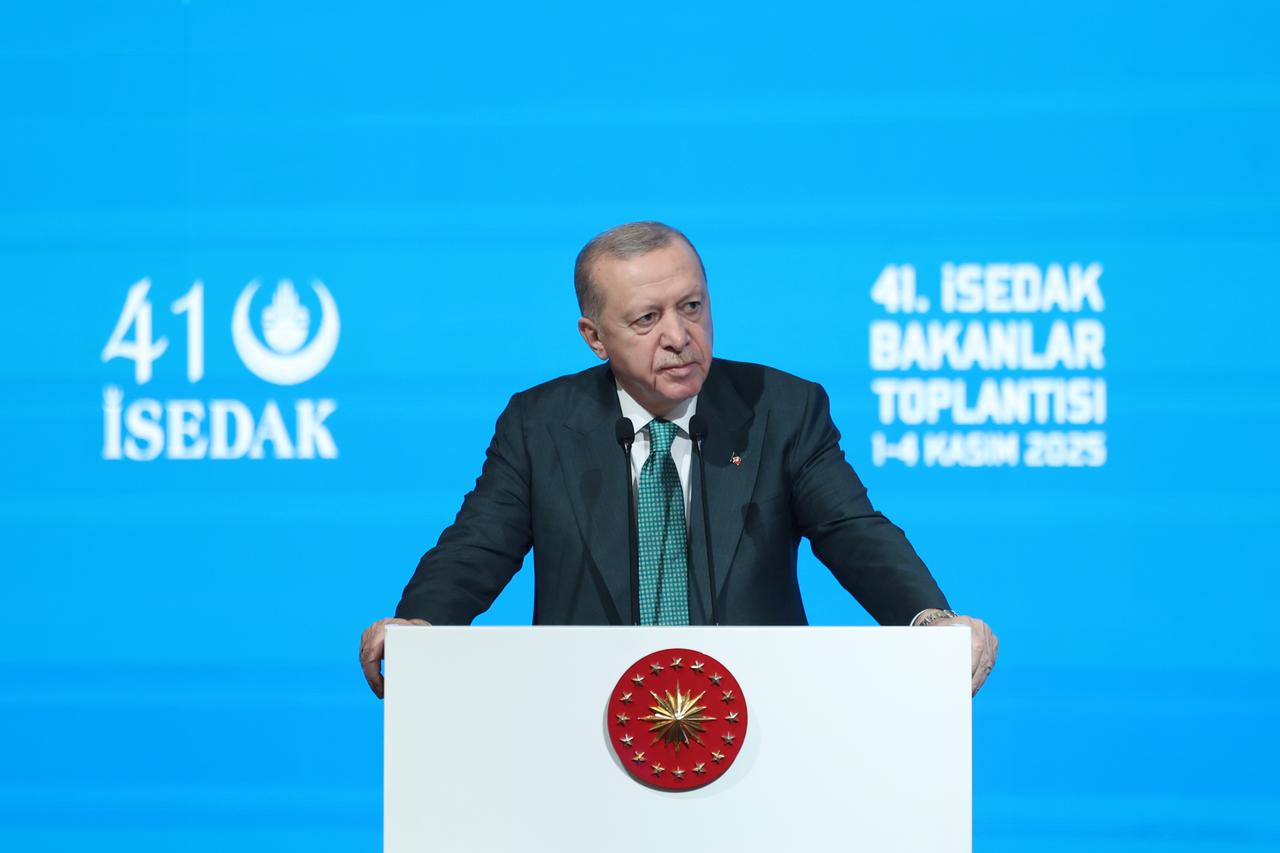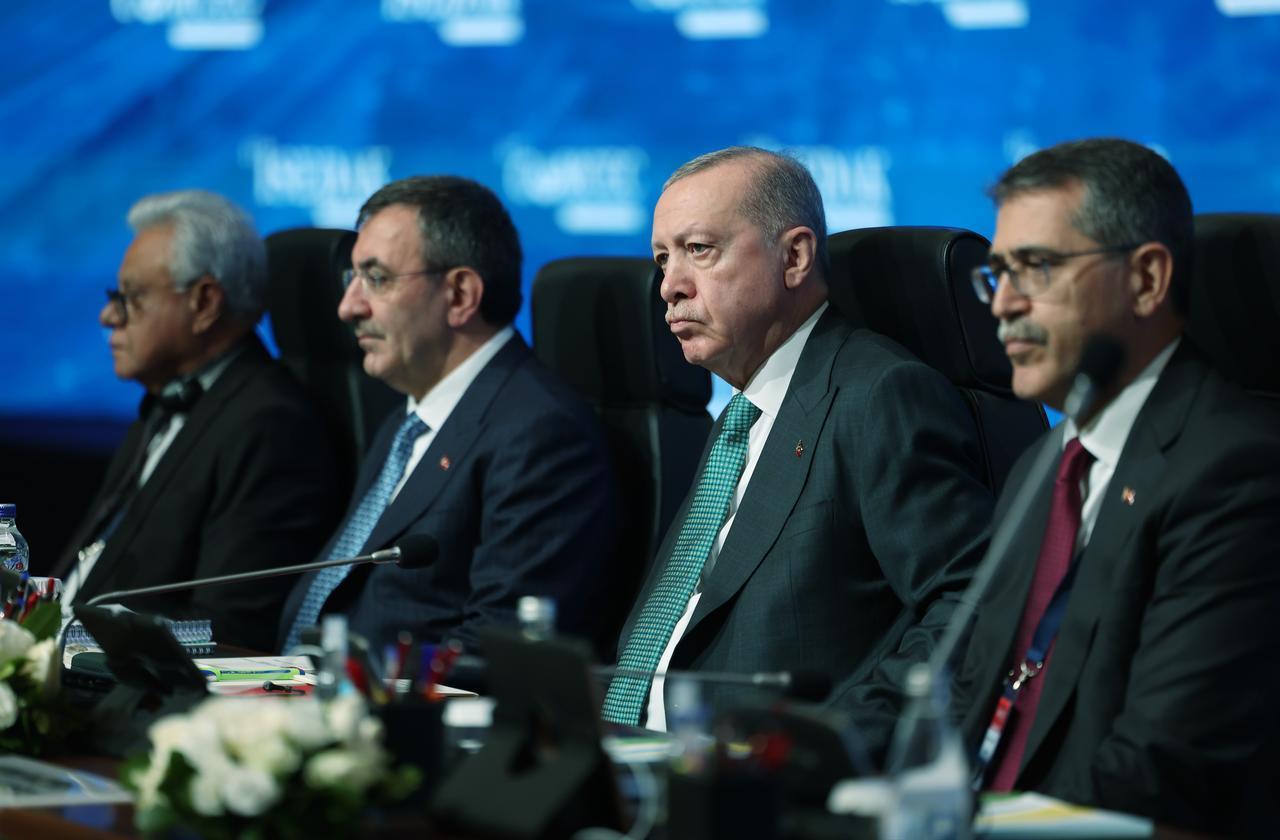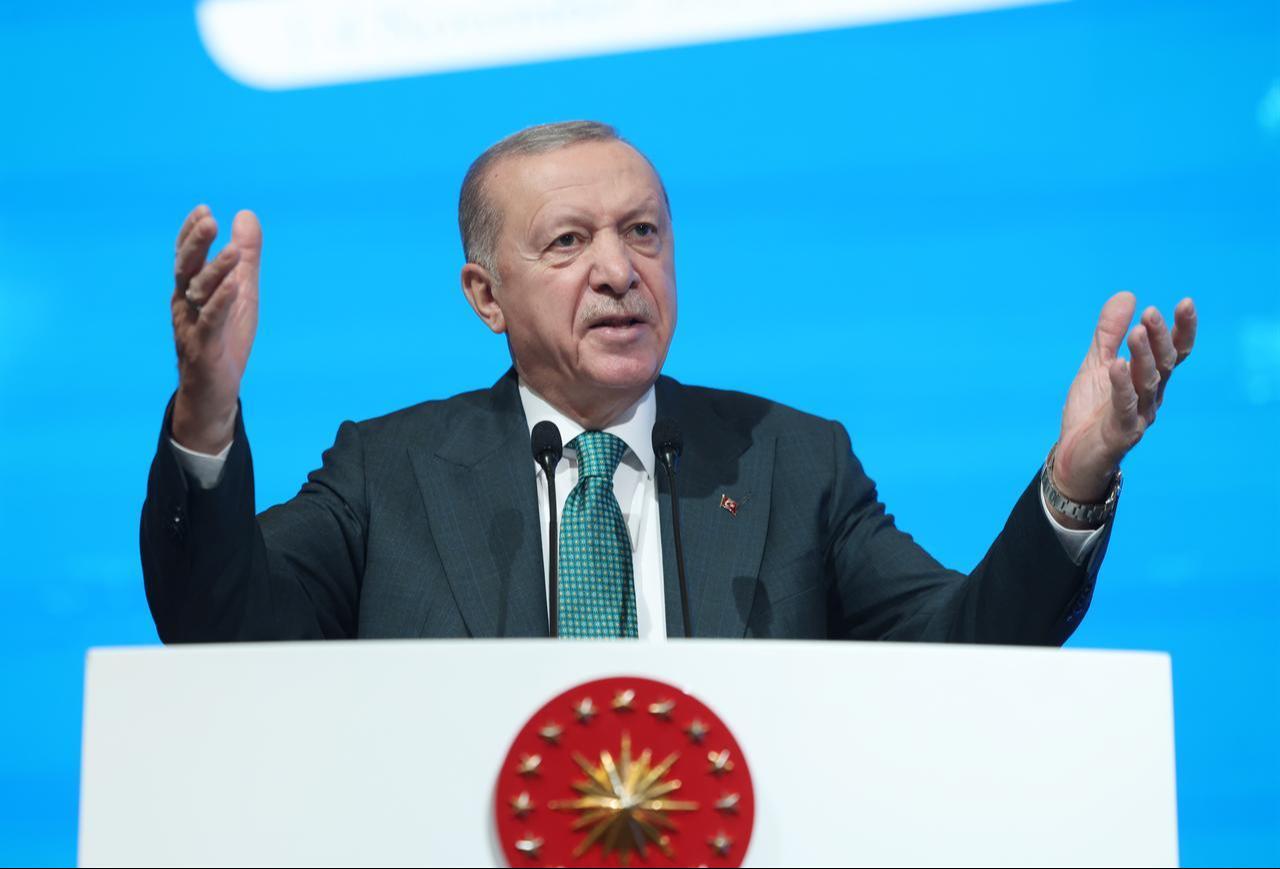
President Recep Tayyip Erdogan announced Monday the launch of a special support program for Syria under the Standing Committee for Economic and Commercial Cooperation (COMCEC) of the Organization of Islamic Cooperation (OIC), highlighting the need for continued solidarity within the Islamic world to preserve Syria’s political unity and territorial integrity.
Speaking at the 41st COMCEC Ministerial Meeting in Istanbul, Erdogan said the initiative would bolster human and institutional capacity in Syria by providing project support in areas such as training, expert exchanges, needs analyses, and feasibility studies.
"For nearly 14 years, our Syrian brothers and sisters have paid a heavy price; nearly one million Syrians lost their lives in attacks by the Baath regime and terrorist organizations," he said, noting that Türkiye hosted 3.6 million refugees during that time.
He said the atrocities that had turned Syria into a "bloodbath" for more than a decade ended with the collapse of the Assad regime on December 8, adding that Syria had entered a recovery phase under the leadership of President Ahmad al-Sharaa.
Erdogan underscored that Türkiye would continue supporting the Syrian people in fields ranging from education and health to trade and transportation.
He said the backing of the OIC and the wider Islamic community remained vital for ensuring Syria’s political stability and future prosperity.
"Syria’s integration with regional economies will bring tangible benefits to both Syria and our region," he added.
Touching on COMCEC’s broader mission, Erdogan called for the promotion of Islamic finance tools to strengthen small and medium-sized enterprises’ access to credit and align export guarantees with Islamic principles. He encouraged all OIC members to join COMCEC’s SME cooperation program.
He also pointed out that the global economy’s growth rate, which averaged 3.7% before the pandemic, is expected to slow to 3% in the 2025–2030 period.
"This reflects not only an economic slowdown but a search for a new balance in global policies," he said.

Reviewing the OIC’s performance over the past five decades, Erdogan said member states had not gained a fair share of global trade.
He noted that while per capita income in OIC countries had risen from $1,169 to $4,453, the global average had surged from $2,611 to over $13,000 during the same period.
Despite vast natural resources—60% of global gas reserves and 65% of oil reserves—OIC members’ share in world trade remains stuck at 11%, below the 25% target set by the organization.
He urged member nations to expand participation in the OIC’s preferential trade system launched in 2022, emphasizing that new-generation trade agreements could help strengthen cooperation.

Erdogan also addressed ongoing crises in Gaza and Sudan during his opening remarks.
He said Hamas appeared determined to uphold the Gaza truce, while Israel continued to obstruct humanitarian efforts. "We need to deliver more aid to the people of Gaza and then begin reconstruction efforts," he said, criticizing Israel for preventing progress.
Erdogan voiced support for the reconstruction plan jointly prepared by the Arab League and the OIC, urging that it be implemented without delay.
"It is essential that the OIC and COMCEC play a leading role in Gaza’s recovery," he said.
In Sudan, Erdogan condemned the massacres in El-Fasher and called for the protection of Sudan’s sovereignty and territorial integrity, saying, "No one with a conscience can remain silent about the massacres against civilians."
Erdogan also welcomed representatives from the Turkish Republic of Northern Cyprus (TRNC), describing Turkish Cypriots as an inseparable part of the Islamic world. He said they had endured "unlawful isolation" for decades but continued to resist pressure.
Warning of "new imperialist plans" for Cyprus, he reiterated Ankara’s support for a two-state solution and called on OIC members to back the Turkish Cypriot cause